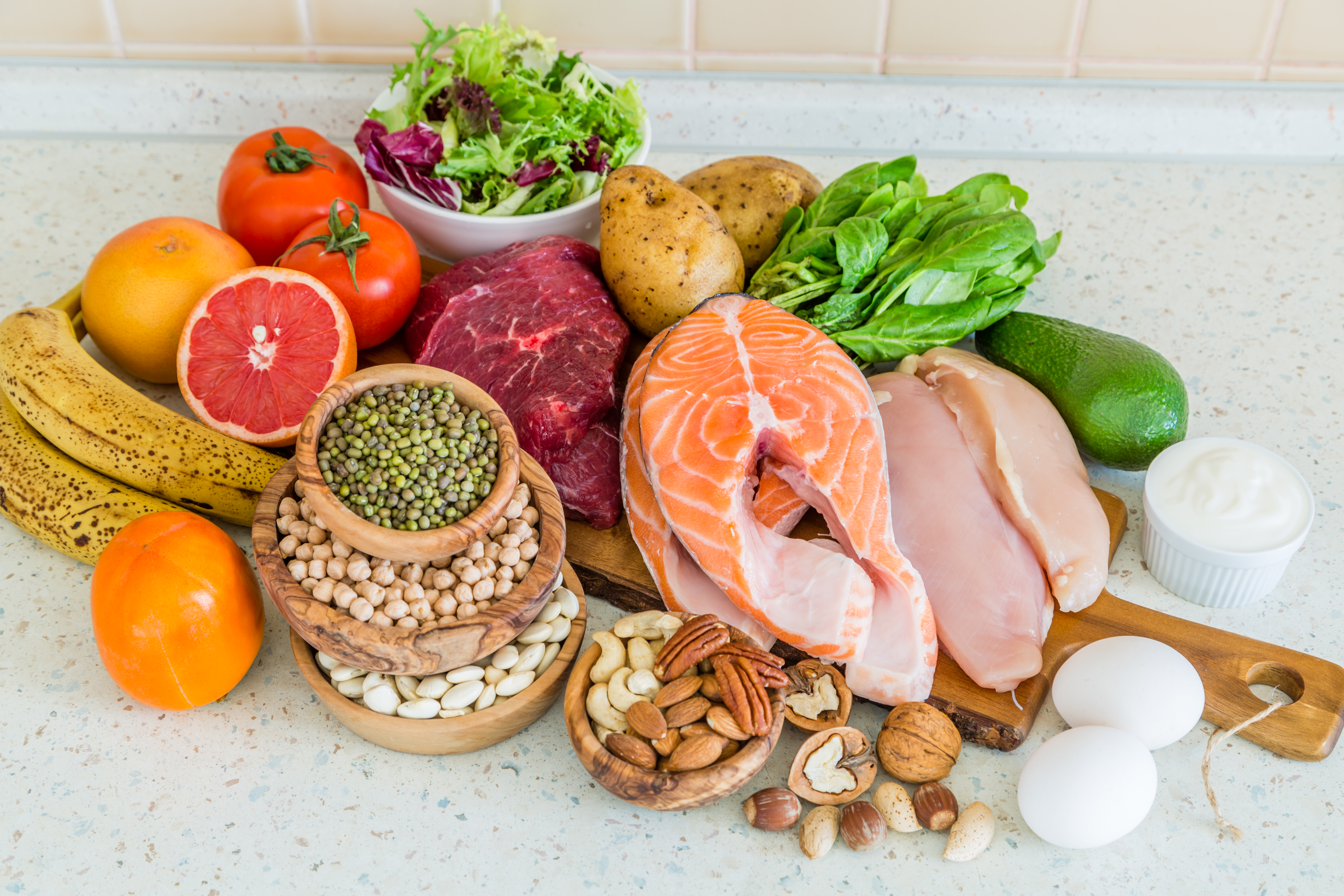7 Proven Ways To Naturally Boost Your Testosterone Levels

Testosterone, also known as the "male hormone," plays an important role in male health, including muscle development, changes in voice, libido, hair growth, and energy levels. Many factors affect testosterone levels, from age to stress level, but there are many ways to boost testosterone levels naturally rather than synthetic solutions.
Let's dive in to learn about the 7 proven and effective ways to boost testosterone levels naturally.
What is Testosterone?
Testosterone (ہارمون مردانہ) is a steroidal hormone that is produced in the testis and ovaries. The adrenal glands (in the kidneys) also produce small amounts of testosterone.
Both males and females produce testosterone. During puberty, an individual is assigned male at birth, and testosterone is one of the main sources of male-related physical changes. When an individual is assigned female at birth also produce testosterone but in low quantity and have higher levels of estrogen.
Maintaining the optimal level of testosterone is important not only during puberty but throughout adulthood. In adult males, a normal level of testosterone supports overall well-being and also helps reduce the risk of certain diseases. It is important for reproductive structure and function. The optimal level of testosterone helps to improve muscle strength and development.
You may also read "20 Signs & Symptoms of Porn Addiction & How to Get Rid of It".
Signs and Symptoms of Low Testosterone:

As men get older, nearly 40% of men over the age of 40-45, their testosterone levels naturally decline, a condition known as hypogonadism (it is a condition where the body either doesn't produce enough testosterone or doesn't respond to it properly). When testosterone level reduces significantly, the body begins to show distinct symptoms.
Low libido: Testosterone plays a key role in male sexual desire, so when levels drop, a decreased interest in sex may occur.
Hair Loss: Genetics plays a role, and low testosterone can also cause loss of body and facial hair.
Erectile dysfunction (نامردی): Low testosterone levels can make it difficult to achieve or maintain an erection. It refers to a condition in which a man is unable to get or maintain an erection firm enough for sexual intercourse, leading to erectile dysfunction.
Mood Changes: Low testosterone causes depression and mood disorders; some men respond better to testosterone therapy than antidepressants.
Obesity: Testosterone supports metabolism, so low levels slow calorie burning and promote weight gain.
Gynecomastia: Enlarged male breast tissue because of an imbalance between testosterone and estrogen.
Decrease in muscle strength and mass: Due to the testosterone hormone’s direct role in muscle protein synthesis.
Decrease semen level (منی): Semen is the fluid released during ejaculation that contains sperm, and low testosterone can reduce its volume, potentially affecting fertility.
Fatigue: Constant tiredness, lethargy, and lack of motivation, even after a full night's sleep, can be a sign of low testosterone.
Osteoporosis (پن بھرا بھر کا ہڈیوں): Low testosterone can weaken bones in men, increasing the risk of fractures.
What is a Testosterone Level Test?
Three types of blood tests identify different forms of testosterone:
Total Testosterone Test:
It measures both free testosterone (free testosterone is the active form of testosterone in the blood that isn’t bound to proteins and is available for the body to use) and testosterone bound to proteins. It's the most commonly used test.
Free Testosterone Test:
It measures only the "active" form of testosterone, which isn't bound to proteins. It is not commonly used, but it can help in diagnosing certain conditions.
Bioavailable Testosterone Test:
This test measures free testosterone and testosterone that is loosely attached to a protein called albumin. While it's not commonly conducted, it can help diagnose certain conditions, similar to the free testosterone test.
The normal range of testosterone is approximately 8.7 – 29 nmol/L for total testosterone and 0.2 – 0.62 nmol/L for free testosterone.
How to Increase Testosterone Levels Naturally?

Regular Exercise
Exercise is a powerful way to prevent lifestyle-related diseases and boost testosterone levels. Exercise can help with weight loss, and reducing excess weight may boost testosterone levels. Resistance training, such as weightlifting, can temporarily increase testosterone, while high-intensity interval training (HIIT) is one of the greatest ways to increase testosterone levels.
In general, focus on both strength training and some high-intensity cardio.
"Those who think they have no time for exercise will sooner or later have to find time for illness." - Edward Stanley.
Adequate Sleep
Sleep is important for overall health and testosterone production. Most of the testosterone is released during sleep, so inadequate rest directly impacts its level. Research indicates that getting fewer than eight hours of sleep can lower testosterone levels by as much as 10 to 15% the next day. Although 4 to 5 hours of sleep might feel enough, it can lead to lower testosterone levels over time. Getting enough sleep is crucial for supporting healthy testosterone levels and overall well-being.
Sleep is the golden chain that ties health and our bodies together." - Thomas Dekker.
Eat Protein and Carbs
Your diet plays a key role in regulating testosterone and other hormones. Eating enough protein helps maintain healthy testosterone levels and can aid in fat loss. Both constant dieting and overeating can disrupt testosterone production. Healthy fats also support hormone balance, as low-fat diets may reduce testosterone. A balanced diet rich in proteins, carbs, and fats is ideal for optimizing testosterone levels and promoting overall health.
Vitamin D Intake
Vitamin D plays a key role in maintaining healthy testosterone levels. Studies indicate that men with adequate Vitamin D have higher testosterone levels than those lacking it. Try to get 10–20 minutes of early morning sunlight daily, or consider taking a Vitamin D3 supplement (with your doctor’s approval). Include Vitamin D-rich foods like fatty fish, fortified cereals, cod liver oil, fortified dairy products, and egg yolks in your diet to help boost testosterone levels.
Increase Intake of Magnesium and Zinc
Zinc and magnesium are vital for testosterone production. Zinc helps boost levels, while magnesium aids absorption and muscle recovery. Eat zinc-rich foods like oysters, Spinach, Cashews, beef, Lentils, pumpkin seeds, and magnesium sources like avocado, almonds, black beans, Chia Seeds, and dark chocolate. If there is a high level of deficiency, consider supplements, but consult a healthcare provider first.
Reduce Stress Level
Chronic stress causes to increase in cortisol levels, which negatively impacts testosterone levels, causing fatigue, low energy levels, and loss of muscle strength. To manage stress, practice mindfulness, meditation, deep breathing, or engage in activities like yoga, reading, or listening to music to help restore balance.
Limit Alcohol Consumption
Too much alcohol consumption reduces testosterone production, disrupts sleep, and impairs muscle recovery. To optimize testosterone levels, limit alcohol to a few drinks per week, opt for lower-alcohol choices, and avoid binge drinking.
The Messenger of Allah (peace and blessings of Allah be upon him) said:
“Allah has cursed alcohol, the one who drinks it, the one who pours it, the one who sells it, the one who buys it, the one squeezes (the grapes, etc.), the one for whom it is squeezed, the one who carries it and the one to whom it is carried.”
(Classed as sahih by al-Albani as stated in Sahih Abi Dawud, 2/700.)
If you want to learn about "The Side Effects of Masturbation in Islam", visit now.
Takeaway:
By adopting a healthy lifestyle, balanced diet, and consistent habits, you can naturally boost testosterone levels and enhance overall vitality and well-being.
If you have any issues related to your testosterone level, feel free to consult with the best endocrinologist in Pakistan by visiting www.apkamuaalij.com. For a quick consultation, dial 042 3238 0001 and book your doctor through Apka Muaalij telehealth platform, the best telehealth platform in Pakistan.
Frequently Asked Questions (FAQs)
How can I boost testosterone?
Exercise regularly, eat a balanced diet, sleep well, reduce stress, and maintain a healthy weight.
Which foods increase testosterone?
Eggs, fatty fish, leafy greens, nuts, seeds, and foods rich in zinc and vitamin D.
Does masturbation reduce testosterone?
No, masturbation does not have a long-term effect on testosterone levels.
Which vitamins boost testosterone?
Vitamins D, B6, and C are known to support healthy testosterone production.
Is sugar bad for testosterone?
Yes, excessive sugar intake can lower testosterone levels by increasing insulin and fat storage.

Dr. Bisma Shehzadi
Dr. Bisma Shehzadi, Pharm.D, RPh, is working as a professional seasoned content writer with 4 years of experience in healthcare and wellness writing. With a strong pharmaceutical background and clinical knowledge, she creates research-driven, search-optimized articles that simplify complex medical topics. Her writing enables her to craft content that educates, promotes wellness, and supports healthcare initiatives among online users and readers.